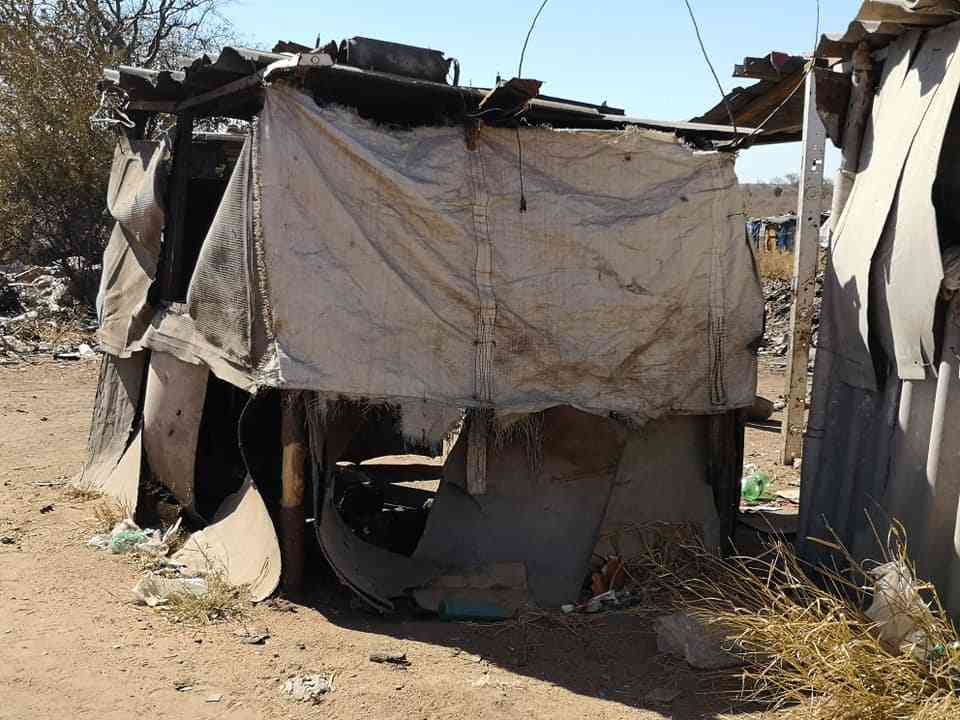
Mercy Moyo* (52) (not real name), an elderly widow is living in fear after her son raped his younger sister in 2016.
Moyo and her children are residents of the notorious Ngozi mine, an informal settlement located a few kilometers away from Bulawayo’s city centre.
A number of inhabitants at the squatter camp survive through waste-picking and recycling metal scraps from the dumpsite.
Crime, prostitution, child and teenage pregnancies as well as drug abuse at the camp are rife.
Moyo says her daughter fell victim to the societal ills at the camp.
“I am living in fear since my son (second born) come back from prison after he raped my youngest daughter (last born)," she said.
“There were days when we slept outside the house fearing that he may come and burn down our dwellings as his behaviour was unbecoming.
“In 2016, he raped my last born when she was 11-years-old.
- CCC cries foul as Chamisa is blocked
- CCC cries foul as Chamisa is blocked
- Mambo Hermus: Chegutu’s unsung music hero
- Community Builder:Chako doing more than just business
Keep Reading
“Then he spent five years in jail and was released in October 2021 but holding a grudge against us for reporting him to the police."
Moyo, who also survives through waste-picking, said she relocated her daughter to Chegutu to save her from further sexual assault by his brother.
“I am happy that she is now away from this environment and getting counseling,” she said.
MaNdlovu* (48) is also a bitter woman who said she is emotionally being abused by her 16 year-old daughter.
She says her daughter started cohabitating with her boyfriend about two years ago.
“She is dating a man called Handsome in the area,” she said.
“The man is a womaniser, violent and has been physically and emotionally harassing my daughter including myself and my husband.
“He has threatened to beat us up if we ever deny him access to our daughter.”
MaNdlovu said her daughter rarely slept at home.
“From May, June, July, there were days when she did not sleep at home,” she said.
“Between August and September, she stopped going to school altogether.”
MaNdlovu said her daughter later opened up saying she was being forced into marriage against her will by the alleged boyfriend.
“We went to the social welfare (department) and reported this matter and they promised to call but till now they have not done so,” she said.
“We did not report him to the police because when we report our cases, they always tell us that children are not supposed to stay at Ngozi mine.”
Another resident, Sonile Maphosa* said she faced the same challenges with her 12-year-old daughter.
“I have tried by all means to remove her from this environment, but I do not have the financial means to relocate to safer suburbs,” she said.
“Last time her brother took her and tried to beat her up but then her friends told her to lay false rape allegations against him.
“So now her brother is now scared to at least talk to give her parental advice.”
Maphosa said the matter was reported to the village head, Sithembile Ndlovu-Tshuma.
This reporter saw the 12-year-old drinking beer and smoking carefree with her friends.
“My wish is to see my kid get educated and not be part of the sad statistics here,” she said.
Ndlovu-Tshuma said she was overwhelmed with cases of wayward behaviour involving teenagers, especially on forced marriages involving minors.
“We take some of these cases to the Department of Social Development (DSD) but then we don’t usually get any feedback,” Ndlovu-Tshuma said.
“It becomes difficult for us to go back and knock at their office again …
"I have tried by all means to take the issues to the top but … as it is I don’t know how to handle some of the cases; we don’t get any help.”
Scripture Union Zimbabwe-Thuthuka Children’s Project child support officer Best Ndlovu, said parents were also to blame for the wayward behaviour of their children.
“The parents too have loose morals. The children can see that their mother is dating a neighbour and they are sneaking out,” Ndlovu said.
She said the SU tried to assist some children through counselling among other interventions.
“We are also targeting children who are not teen mothers so that they don’t fall prey like the teen mothers here,” he said.
“We also offer life skill activities...educate them on behavior change because most of them fend for their families through prostitution.”
Matabeleland Council for the Welfare of the Child coordinator Phumulani Mpofu, said there was need for more interventions to address the socio ills facing teenagers and minors at Ngozi.
“For example, the Women Affairs Department can come in with life-skill programs and provide frunding for their self-help projects,” Mpofu said.






